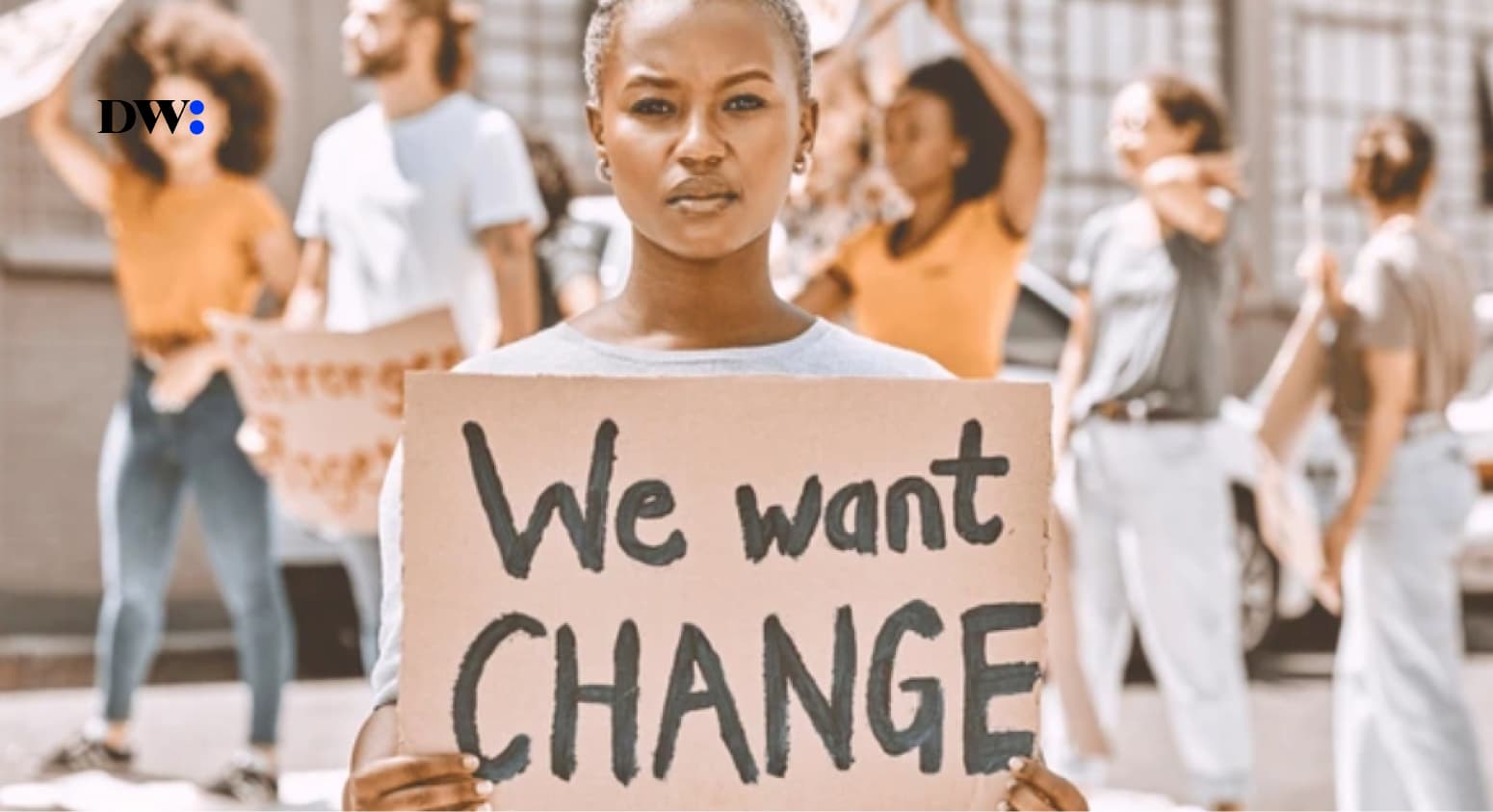Although the Constitution of Nigeria guarantees nondiscrimination and equal treatment of the genders, women in the country are nonetheless subject to discrimination and oppression. Reasons for this include gender bias in the law, social pressures to conform to traditional gender roles, a lack of opportunities to advance women’s education and the poor representation of women in political affairs.
Ahead of the polls, the top four presidential contenders for the forthcoming 2023 elections have Nigerian elections have expressed their intentions and plans on ways their administration would be addressing gender inequality.
Atiku Abubakar of the People’s Democratic Party (PDP):
The presidential candidate of the Peoples Democratic Party, Alhaji Atiku Abubakar, has promised to give 40 per cent of his cabinet positions to women and youths if elected president in the 2023 general elections. While emphasising the importance of women and youths in national development, he raised concern over the high cost of living in the country, blaming it on the failure of the Federal Government-led All Progressives Congress to effectively manage the nation’s economy.
Amongst other social, economic and political promises, an Atiku-led administration promises;
-
To give 40 per cent of his cabinet positions to women and youths
-
To provide capital to women to start up small-scale businesses.
-
To provide security for the people and good education by equipping schools with modern equipment.
-
To ensure more recruitment of personnel, purchase more equipment, train more personnel, and commit more funds to the security agencies
-
To revive economic policies that were implemented during the tenure of former President Olusegun Obasanjo between 1999 and 2007 when he served as vice president.
-
encourage increased private sector investment to stimulate economic activities, promote job creation, and give attention to poverty alleviation.
-
To create and promote an enabling environment for both primary and secondary health development programmes for all.
Key Antecedents:
-
As vice president from 1999-2007, as head of the government’s economic team, he oversaw successful reforms in the telecommunications, pensions and banking sectors that led to jobs and GDP growth.
-
Mr Abubakar’s reputation in business is linked to the spectacular rise of Intels, the oilfield logistics firm that he co-founded in 1982. From its original office in a shipping container, the company has grown into a multi-national, multi-billion naira operation, employing more than 10,000 people.
-
He has diverted part of his wealth to charitable causes, most notably establishing the prestigious American University in Adamawa state, northern Nigeria. The university has offered scholarships to some of the “Chibok girls” – survivors of a high-profile kidnapping by Islamist Boko Haram militants.
-
During two terms in office, he oversaw a series of privatisations, earning praise as a liberaliser in some quarters, and criticism elsewhere as a crony capitalist.
-
He takes credit for reforming the banking sector, the auction of mobile phone licences, as well as for an economic boom that enabled Nigeria to pay off much of its debt.
-
His passion for education is largely portrayed by his huge investment in building a private world-class university that runs uninterrupted and is not starved of required funds for research.
-
In 2020, he recommended that to drastically bring down youth unemployment, every family in Nigeria with at least one school-age child, and earning less than $800 per annum should receive a monthly stipend of N5000 from the government.
Rabiu Musa Kwankwaso of the New Nigeria People’s Party (NNPP)
The former Senator, and former governor of Kano state, released a 152-page document titled “My Pledges To You” as his manifesto, containing some promises as shown below. Mr Kwankwaso, represented by his running mate, Isaac Idahosa, told journalists that the NNPP had a “total package” plan for women in its government, at an event which coincided with the GAIN document presentation, put together by the YouthHub Africa, Inclusive Friends Association and Women in Politics Forum, with the support of the National Democratic Institute and the United States Agency for International Development.
Amongst other social, economic and political promises, a Rabiu-led administration promises;
-
To create an enabling environment for small businesses to thrive and empower women and youths to stimulate the economy.
-
To give women enough recognition that would better their lots and their families, especially in the area of security, education and economy.
-
That the size of the Nigerian Armed Forces will be built to about one million active service men and women, and that the size of the Nigerian Police will also be built to about one million active service men and women.
-
To take care of the out-of-school children across the country through the construction of 500,000 classroom blocks across the country with a presence in all 774 local government areas.
-
To strengthen and encourage the Federal Mortgage Bank and simplify its operations and procedures to remove bottlenecks and liberalise access to mortgages and other housing facilities.
-
To establish a development that is comprehensive, all-inclusive and evenly distributed across the length and breadth of the country through the provision of critical infrastructure that supports the development and the well-being of the people in every region and every state of the Federation.
-
To ensure that every injustice, real or perceived, must be tackled and eliminated
-
To revolutionise farming practices by investing in technology, training and extension work to attain food security as well as capture a substantial market share of food in the African continent.
-
To ensure the deployment of global best practices in the establishment and management of forestry, plantation, animal husbandry, livestock, poultry, and fisheries as well as guarantee an agriculture value chain that protects the farmers, the livestock owners as well as the consumers.
Key Antecedents:
-
To achieve a sustainable healthcare system, he introduced a free natal programme for pregnant mothers and encouraged monthly routine of immunisation programmes in the state.
-
He has demonstrated in the past his passion for education and was instrumental in assisting many youths from his state to attain higher qualitative education on state-funded scholarships abroad.
-
Kwankwaso established the State University of Technology at Wudil in its first tenure in 2001 and the North West University in its second term in 2012. Only Kano State followed by Katsina State has achieved this feat in the history of the country to spring two universities within ten years.
-
He was able to give the Federal Government a property that was turned into the Nigeria Law School at Bagauda.
-
Kwankwaso worked assiduously to improve upon the state’s internally generated revenue as it rose from N400 million to more than N2 billion a month. The Governor in his administrative acumen ensured that frivolous expenditures were checked in MDAs, saving up to N500 million monthly.
-
Under the Kano State Government Social Services initiative to end street begging, hawking and other vices in the state, the governor was quick to initiate legislation ranging from the ban on street begging to street hawking and stray animals.
-
The establishment of 26 manpower development institutes like the Reformatory, Corporate Security, Sports, Hospitality and Tourism was also noteworthy.
-
So far over 500,000 women and youth have benefitted from these programmes.
-
Kano State under the watchful eyes of Kwankwaso has attained another level of economic development by establishing 44 Garment Industries, one in each of the local councils of the State while young entrepreneurs have access to finance. At least 37 Micro-finance Banks were also established in 37 Local Government Areas to give a financial push to the cottage industries.
-
As part of his campaign promises, Kwankwasiyya laid about 200km of 400 – 1000 D.I pipes to ensure enough water supply to the State.
-
The 35mw Independent Power Project at Challawa-Gorge and Tiga Dams were constructed to meet the power needs of the people of the state.
In an earlier article, Document Women covered the promises and antecedents of the Labour Party and The All Progressives Congress.





